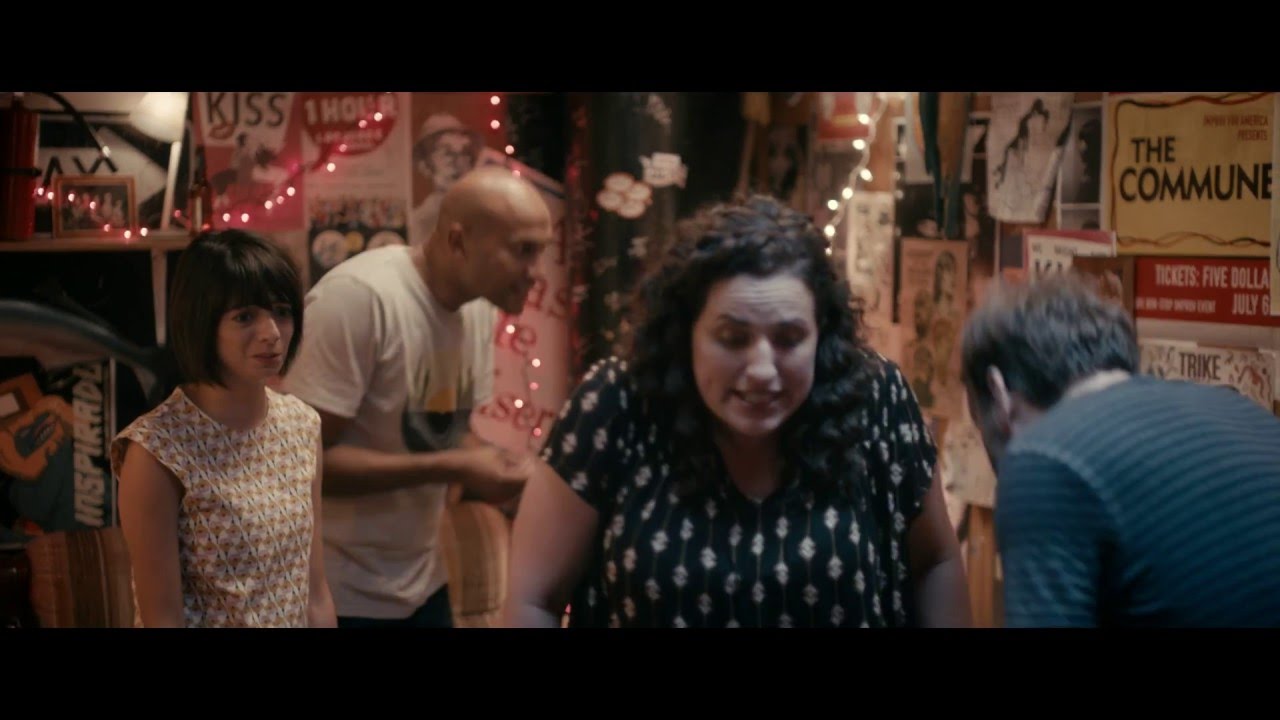You don’t have to be a fan of improv — often referred to as “the Irritating Art”, by me — to enjoy Mike Birbiglia‘s ensemble dramedy. Don’t Think Twice is very much grounded in that world of audience prompts and miming, and very much enthralled with its performative nuances and history, but the film also tells a more basic story about belatedly growing up and growing apart.
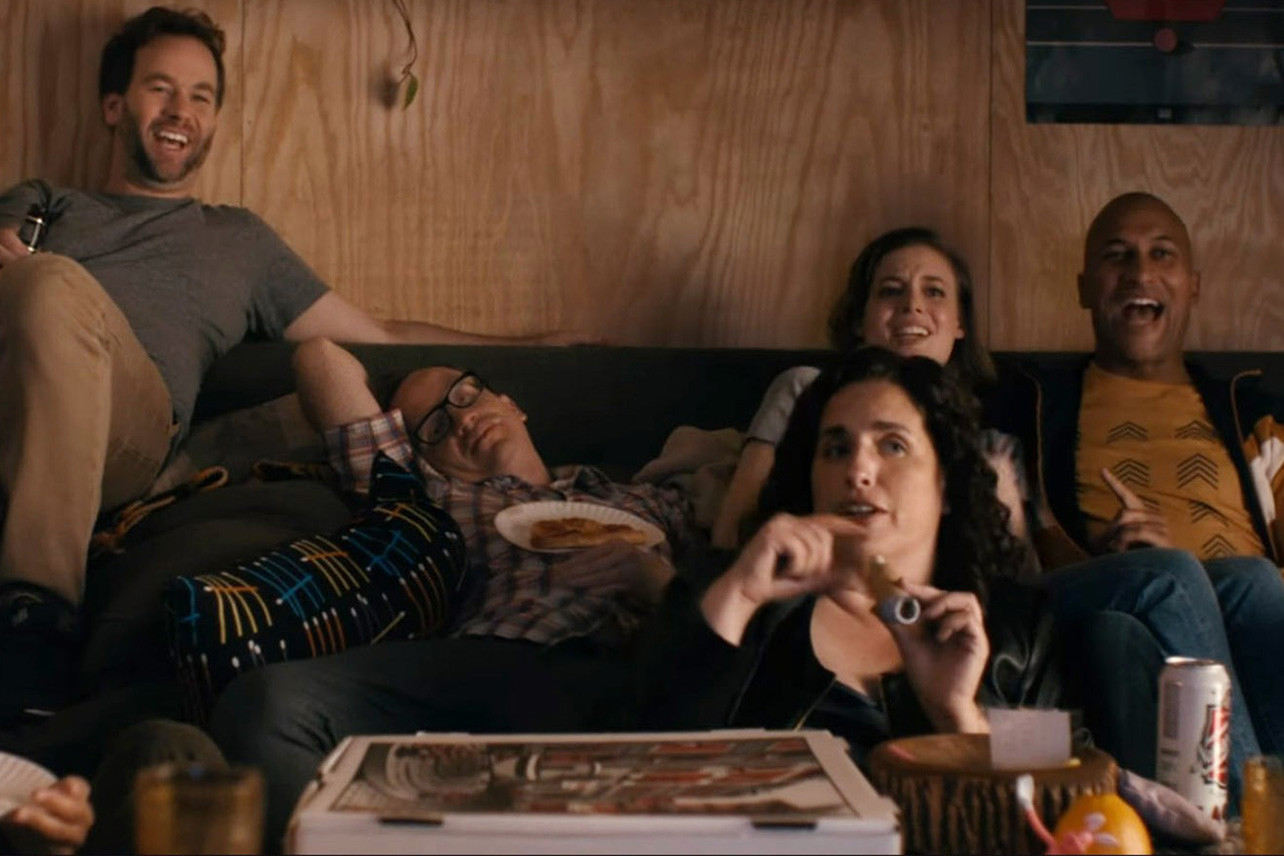 The authenticity that courses through Don’t Think Twice‘s veins isn’t hard to pinpoint: Birbiglia, Gillian Jacobs, Kate Micucci, Tami Sagher, Keegan-Michael Key, and Chris Gethard — who together make up the film’s improv ensemble The Commune — clearly have a deep familiarity with this world, or worlds very much like it. It shows in their on-screen/on-stage performances, but also in their interactions as they start to wonder how long they can keep this grind going, working shitty jobs during the day in the hope of that elusive thrill before an audience later that night — or even that big break if and when casting agents happen to show up. There’s camaraderie, hope, and more than a whiff of desperation.
The authenticity that courses through Don’t Think Twice‘s veins isn’t hard to pinpoint: Birbiglia, Gillian Jacobs, Kate Micucci, Tami Sagher, Keegan-Michael Key, and Chris Gethard — who together make up the film’s improv ensemble The Commune — clearly have a deep familiarity with this world, or worlds very much like it. It shows in their on-screen/on-stage performances, but also in their interactions as they start to wonder how long they can keep this grind going, working shitty jobs during the day in the hope of that elusive thrill before an audience later that night — or even that big break if and when casting agents happen to show up. There’s camaraderie, hope, and more than a whiff of desperation.
Don’t Think Twice gives the ensemble roughly equal screen time, but its narrative drive comes two main sources. The first is the relationship between Samantha (Jacobs) and Jack (Key), very adorably played but which will come under increasing stress as unexpected career options open. The second is the generally consuming, barely concealed sense of grievance Miles (Birbiglia) harbors, the erstwhile leader of the group who insists he’s always been just this close to breaking through to mainstream comedy success.
One of Don’t Think Twice‘s main charms is its low-key approach to these themes, and the ease with which it can invoke the tension formed in any circle of long-time friends and then allow it to be cast off with genuine laughs. It’s a very familiar dynamic, and the fact that they all work together grounds it in an honest way.
These are people who love each other and want each other to succeed, while also recognizing that any individual success 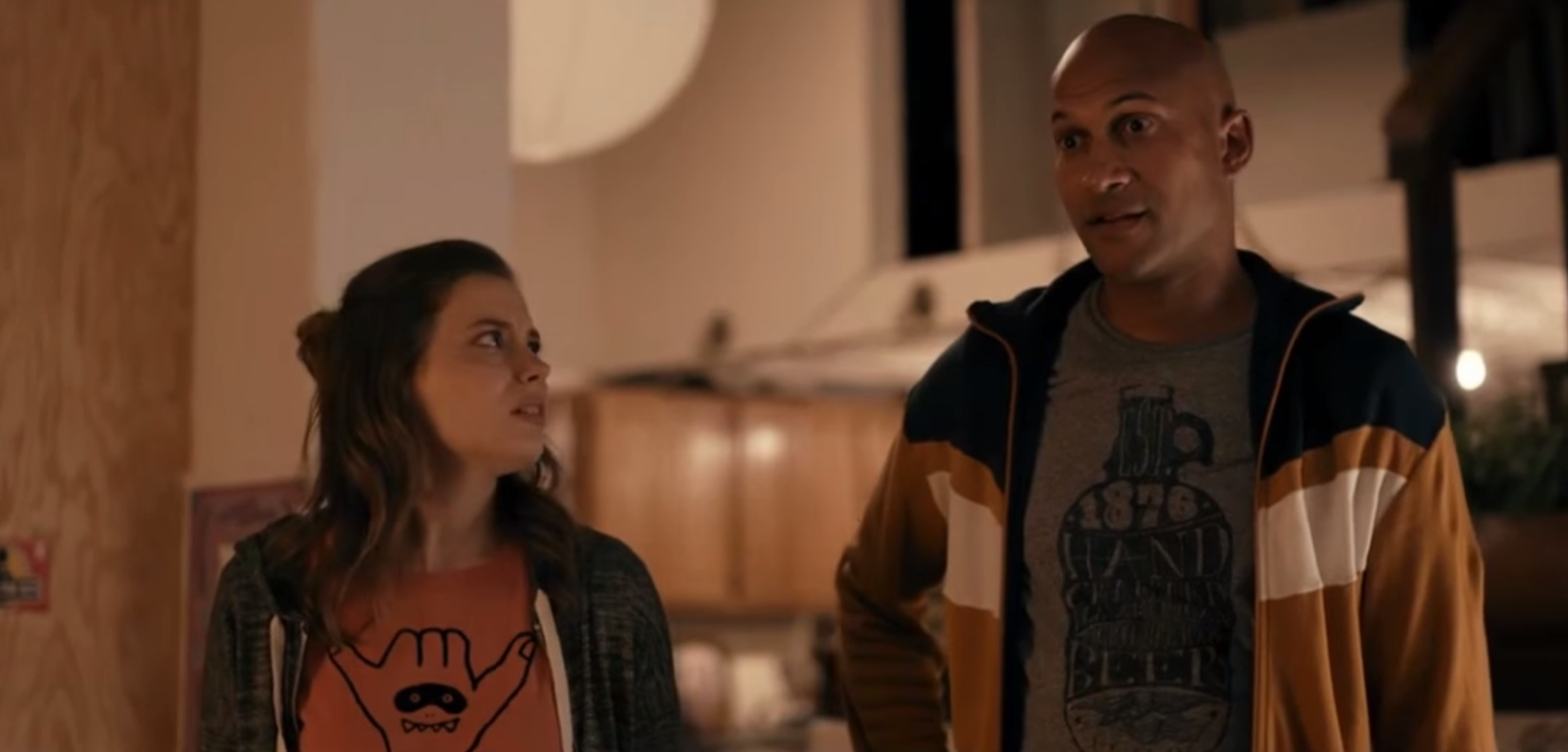 probably spells doom for this cherished thing they put together as a team. An improv troupe is uniquely constituted to illustrate this push and pull, and Don’t Think Twice makes the most of it.
probably spells doom for this cherished thing they put together as a team. An improv troupe is uniquely constituted to illustrate this push and pull, and Don’t Think Twice makes the most of it.
Like most of its characters, Don’t Think Twice has modest ambitions that it completely fulfills, with enormous help from a very funny cast filling in nicely delineated roles with believable detail. (Key and Jacobs are especially good in what end up being the central roles.) Birbiglia sets his film in the improv world, but its insights and the particular brand of aching that accompanies growth could be mapped onto just about any endeavor. There’s a lot to relate to here.
(Streaming on Netflix)
Quick Links
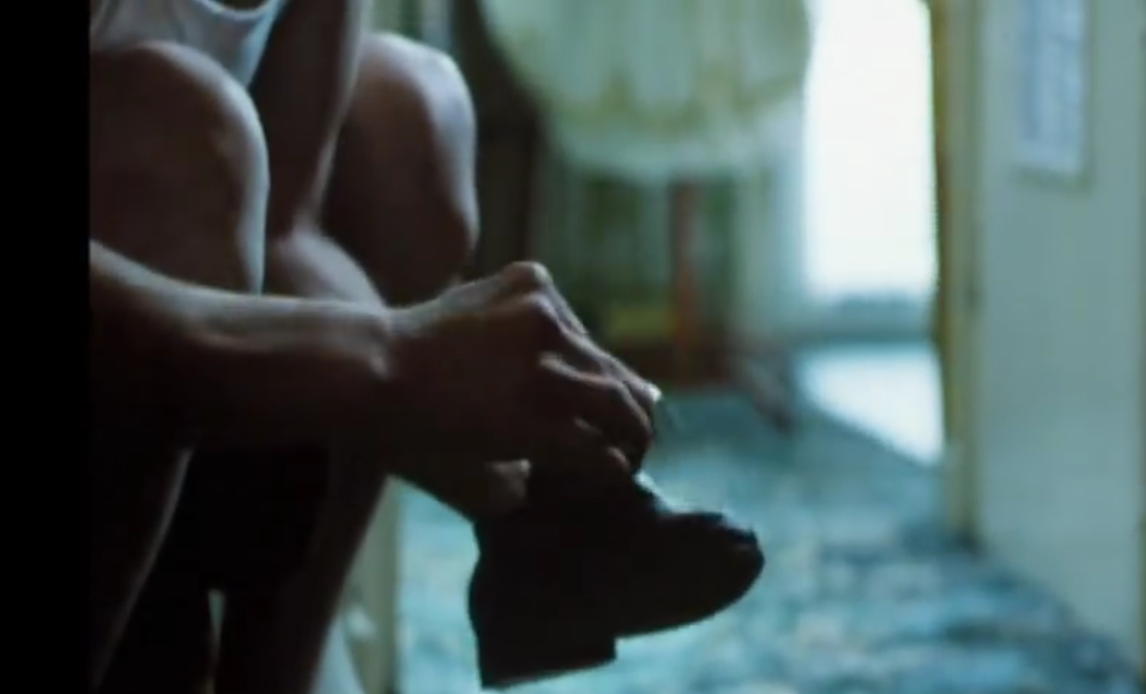
The first few minutes of Lynne Ramsey’s Gasman could be storyboarded with still photographs: a brush against a nice shoe, a dress hanging, steam rising in a working class Scottish kitchen. The nice and tumult in the background suggest it’s a big day, though we barely catch a phrase and don’t see a single face. An impressionistic juxtaposition of closed images and diegetic sound, we simply encounter activity and stillness as things get going.
As a former photographer, this is where Ramsey excels: giving a sense of place through the objects of her film’s world. The story itself, told essentially through a child’s eyes, is both unremarkable and epic, as things usually appear through child’s eyes. A family will go to a Christmas party at the pub, minus mum, and come home. Along the way, oblique mysteries will arise and go unsolved — how is a kid to know why the adults behave strangely and speak in quiet tones? It simply happens.
There’s resentment and fun, some dancing with Santa, working-class men throwing back pints while the children wrestle or hold hands, a long walk home. Gasman is an utterly lovely depiction of a very particular kind of holiday, out past the train tracks in the dark. It put Ramsey on the map for good reason.
(Streaming on Le Cinema Club through Sunday)
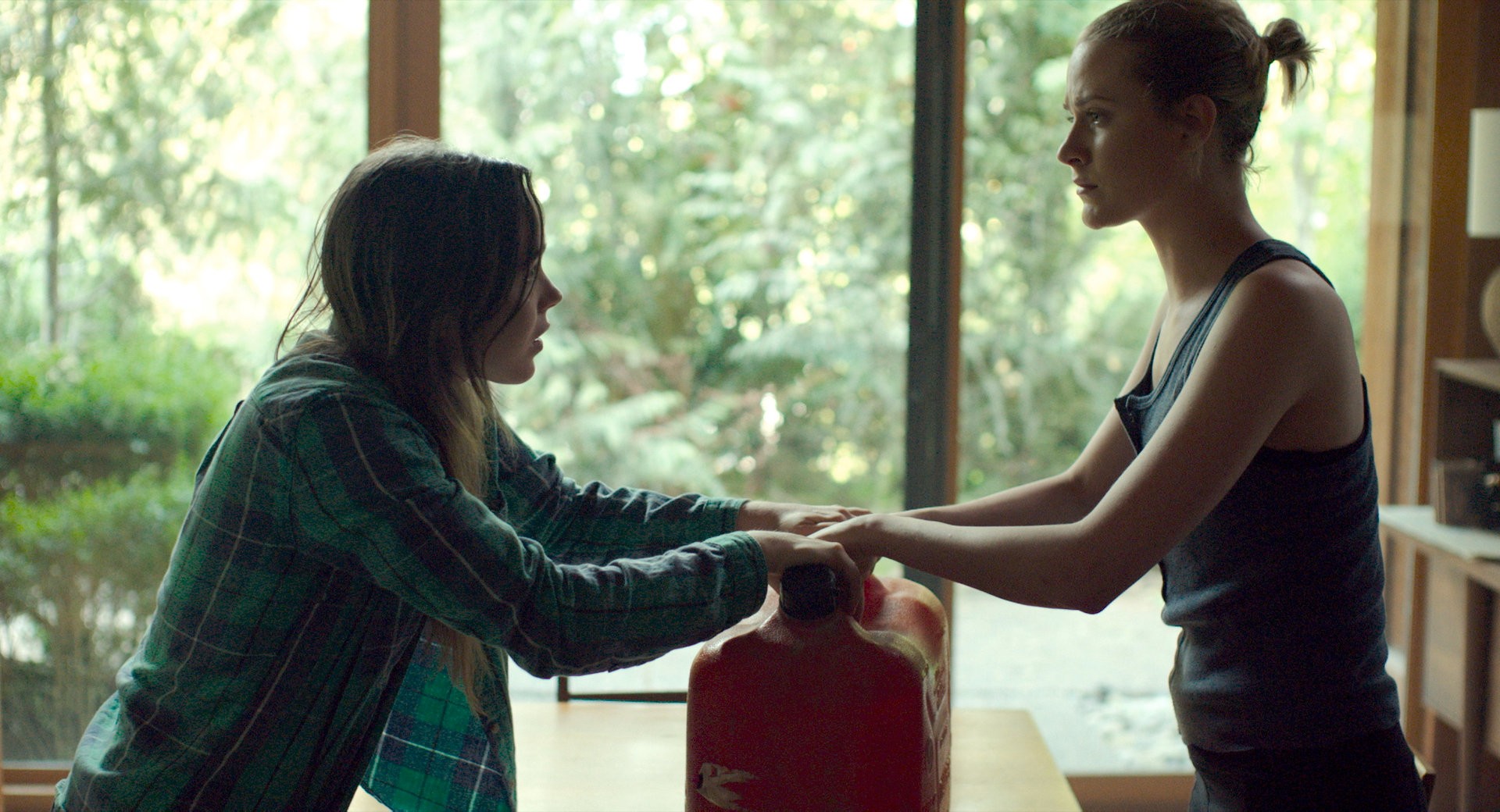
In Patricia Rozema‘s vision of the end of the world, nothing explodes. A distant power outage initiates civilizational collapse, but we spend nearly all of our time examining what this means for the relationship between two sisters sequestered miles away from anything. For the majority of its running time, anyway, this is the most polite, Canadian of apocalypses.
Ellen Page and Evan Rachel Wood are both excellent in the leads, despite looking not much like sisters and nothing like the teenagers they’re supposed to be. It’s a credit to both of the performances, though, that they absolutely convey their somewhat prickly history and long-term bond — they sell the hell out of these parts, Page especially. Rozema keeps the pace slow and steady, with an undercurrent of mounting dread shouldering up against this picture of sisterly solidarity.
If you prefer your cataclysmic events more along the lines of Last Night or Searching For A Friend At The End Of The World than 2012 or The Day After Tomorrow, this might be for you. If you’d like a strong dose of eco-feminism to go with it, then you should already be watching this by now.
(Note: I don’t ordinarily include trigger warnings, but for the record, there’s a pretty upsetting, though non-exploitative, depiction of sexual assault included, and another scene involving a pig that might squick some readers out.)
(Streaming on Amazon Prime)
Blank Panthers: Vanguard of the Revolution
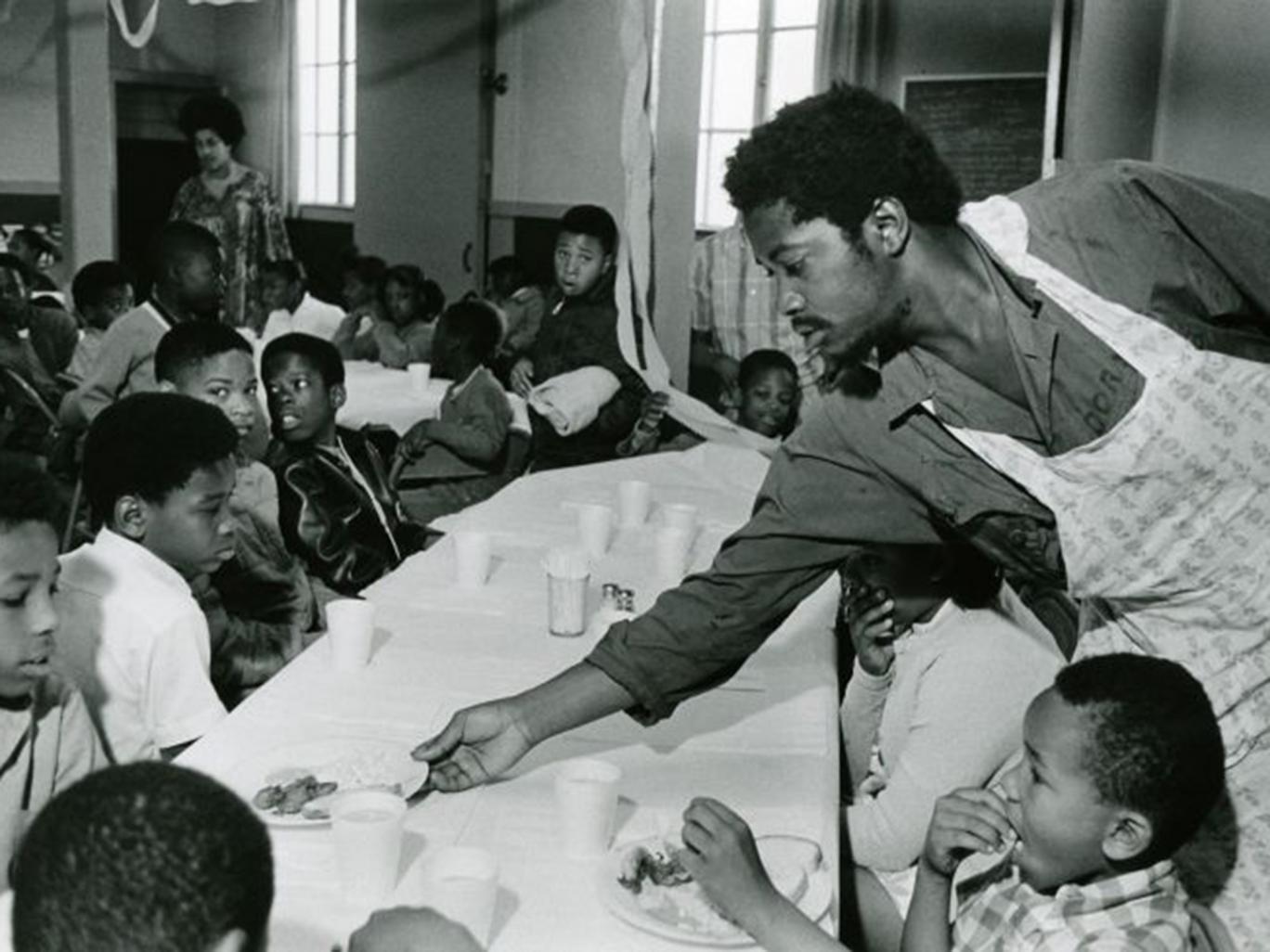
With Antoine Fuqua reportedly considering a Fred Hampton biopic (please let this not be terrible if it happens; we haven’t forgotten you, Stonewall), now might be a good time to check out Stanley Jordan’s solid archival doc about the birth, growth, and complicated dissolution of the Black Panther Party.
When I saw the film, which I thought was competent and fair, screened in 2015 before a Bay Area audience, Jordan was berated by Elaine Brown during the Q&A for his treatment of Huey Newton. So suffice to say: no telling of the Panther story is without controversy. (Also: you do not want to get yelled at by Elaine Brown.)
But Vanguard of the Revolution is full of amazing images, revelatory footage, and insight, no matter where one comes down on the internecine struggles within the party. It gives an overview of its rapid ascent in the public mind and body politic, with particular attention to the crucial role women played — a fact that often gets overlooked in the fetishized, militant images of Black guys with guns. We hear much more about the internal workings of the Survival Pending Revolution programs, and, yes, of the eventual split between factions. Still, it’s a living history always worth revisiting.
(Streaming on Netflix)
Online Field Guide to Sponsored Films
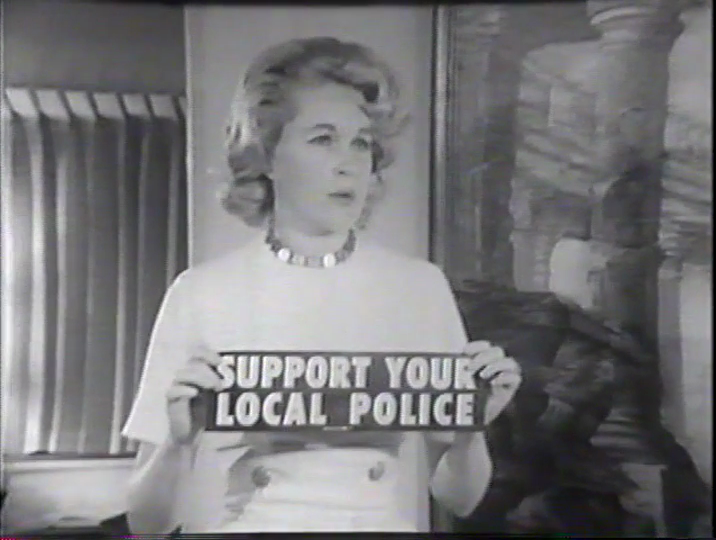
Speaking of living history, the National Film Preservation Foundation has done everyone a solid and made available 452 “sponsored films” from its collection. These include worker training materials, animated propaganda, product ads, and anything else “made by corporations, schools, medical organizations, religious groups, political entities … to record, orient, train, sell, and persuade.” It’s a treasure trove of film history oddities. You could lose a day in here and not scratch the surface.
Of particular interest? The 1966 John Birch Society 16 mm production Anarchy, USA:
Right-wing film arguing that the civil rights movement and urban disturbances of the 1960s were evidence of a worldwide communist revolution and growing dominance at home. The polemic warns that communists may be planning to create an independent African American state.
Directed by notorious lunatic G. Edward Griffin, this one has to be seen to be believed.
(Streaming at the National Film Preservation Foundation)

